5. Dixon Steele fromIn a Lonely Place
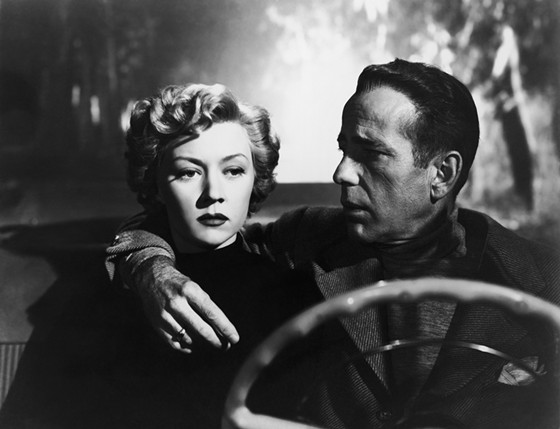
Cynicism is such a defining aspect of film-noir, and no star has ever embodied that quite like Humphrey Bogart. From The Big Sleep to Key Largo, Bogie made his name playing steely cynics, effortlessly embodying the hardened, insolent type of male lead that was such a staple of post-war cinema. Of all his noirs, it’s Nicholas Ray’s In a Lonely Place that gives Bogie the most range, seeing the actor at both his most unpleasant and yet his most human.
Following a down-on-his-luck screenwriter and ex-GI Dixon Steele as he becomes embroiled in a murder investigation, Ray’s sordid noir allows Bogart to test just how much sympathy an audience can have with him. Dix is the flip-side of a Philip Marlowe or Rick Blaine – the type of person those men could’ve easily ended up as had they trodden a slightly different path. This is a man governed by anger, with a short temper and sketchy past littered with minor offences. Stuck adapting books he thinks are no good for an industry he is uninterested in, his worldview is cold and pessimistic. There are flashes of the old Bogart charm, but aggression always simmers just beneath his worn-down exterior, ready to explode at any minute.
Yet through his relationship with Gloria Grahame’s provocative girl-next-door, you also see a softness to his character. It’s as tender as Bogart has been on screen, with an equally impressive turn from Grahame. The most heart-breaking part of it all is the glimmers of hope Ray gives you that things might turn good for these lovers, before yanking that away in brutal fashion. The past will always come back to haunt you. Mistrust, deception and an inherent doubt about goodness in the world will always reign supreme. The early 50s saw a number of significant films that explored the darker aspects of Hollywood, and none are quite as brazenly unpleasant in just how soul-crushing the industry can be as Ray’s early feature.
4. Chuck Tatum from Ace in the Hole
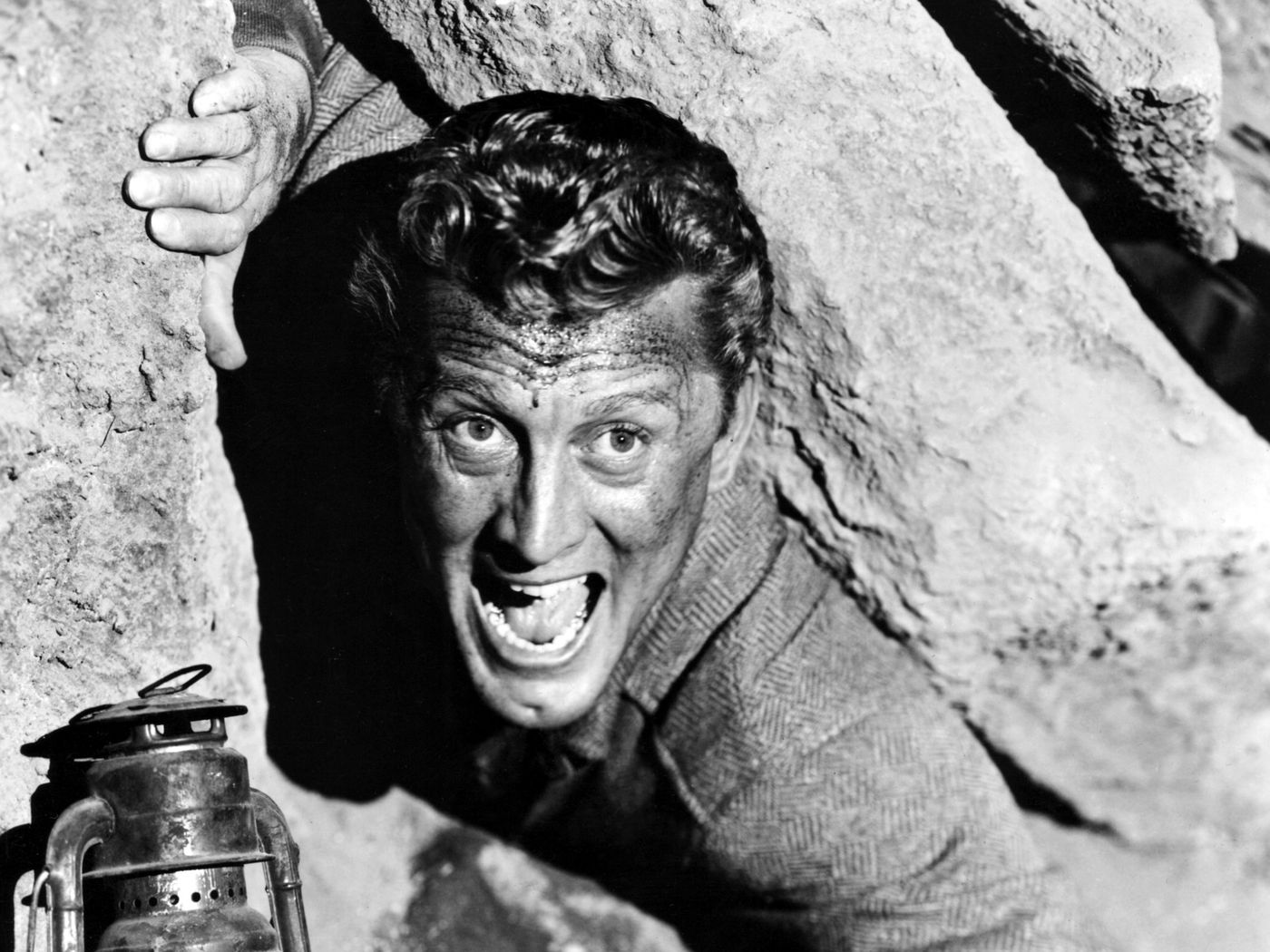
Like Bogart, Kirk Douglas had a penchant for playing hardened, self-centred sleazeballs. Though he wasn’t exclusive to the character type the way Bogie was, he frequently starred in roles that teetered on the edge of likeable. He shone in The Bad and the Beautiful, lit the screen on fire in Detective Story, but was never more outright sleazy than in Billy Wilder’s Ace in the Hole.
One of the most bitter, angry films the Golden Age of Hollywood ever produced, it sees Douglas’ opportunistic reporter Chuck Tatum lie, manipulate and bribe his way into a national news story. His desperate attempt to return himself to former glories is fuelled purely by arrogance, never once stopping to consider his moral responsibility until it’s far too late. It’s an electric performance from Douglas, overflowing with ego, bravado, and contempt for anything that cannot aid him in his quest. Greed is the name of the game, and he doesn’t care who he steps over in his quest for personal triumph. Douglas has the raw physicality to feel powerful on screen, while simultaneously making you see just how weak and empty his characters really are when you strip everything away from them. All his self-interest won’t bring him the fulfilment he seeks, but he goes so all-in that in the end he has no alternative but to accept the rotten fruits of his labour.
A flop upon release, Ace in the Hole has gone on to be regarded among Wilder’s finest pictures. It was his first time in the triple role of producer-director-writer, and has all the hallmarks of his greatest noir stories. It paints a dismal picture of modern society, and a population slowly losing its sense of compassion and empathy in favour of excitement and personal gain. Wilder points fingers at the press and its methods of reporting, as well as his audience themselves, who eagerly lap up what they’re being served. Everything Sidney Lumet was laying bare in Network, Wilder was unpicking decades prior.
3. Patrick Bateman from American Psycho
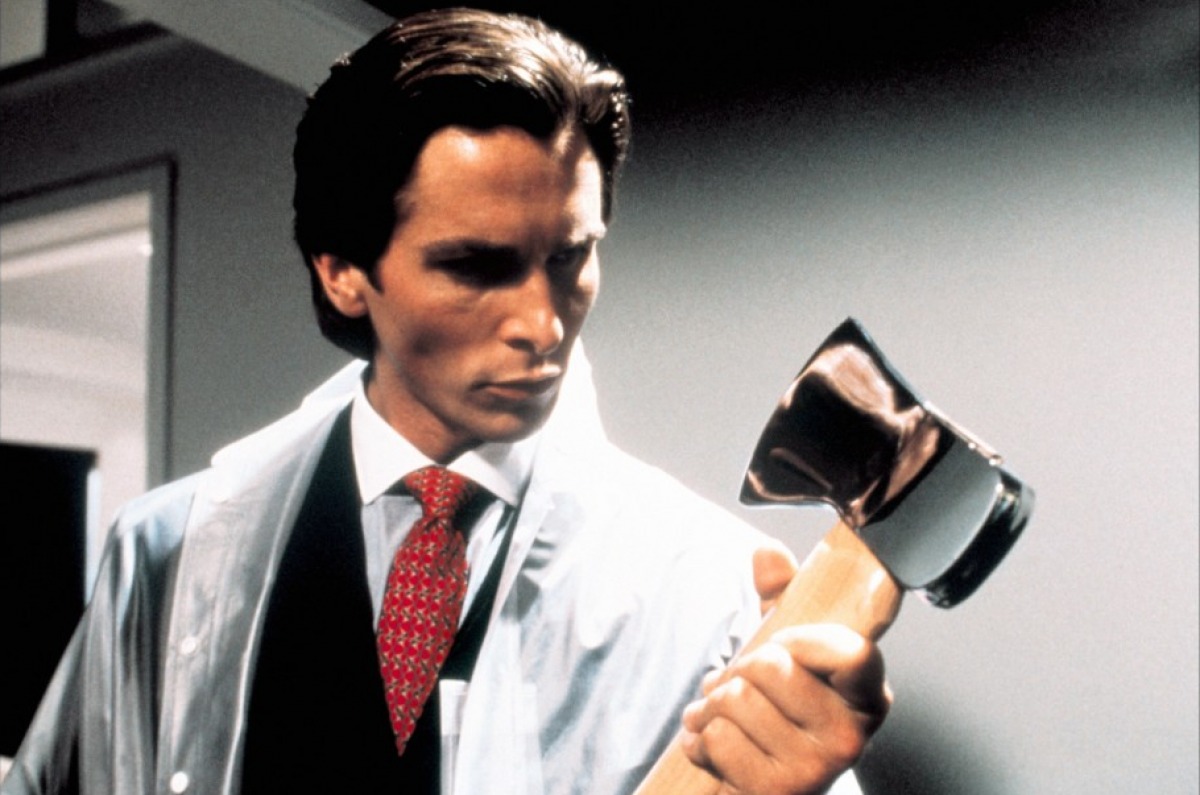
Patrick Bateman’s cynicism is perhaps the scariest of all. It’s the kind that lurks beneath a façade of normality, waiting to manifest itself in outbursts of disturbing, unhinged violence. With his awkward, mannered behaviour and explosions of twisted, manic glee, Bale makes Bateman one of the most strangely compelling serial killers put to film. As sinister as he is goofy, Bateman’s deep cynicism and disconnect from any kind of normality expresses itself in the darkest of ways, with a constant internal monologue that reveals everything and nothing about his unnatural inner workings. His attempts at normal behaviour always feel slightly off, spouting pop culture references and current events like they’re playing cards in a freakish game only he knows is being played. He doesn’t actually care, but he wants everybody to think he does. Not that anyone seems to notice his strange personality quirks; they’re all too self-absorbed themselves, wrapped up in their own private universes.
Bateman is the American Dream personified – rich, successful, young, attractive. With the world seemingly at his fingertips, you’d never guess at the disturbing impulses lurking just beneath his self-proclaimed ‘mask of sanity’. There’s a painful, desperate, almost uncontainable desire inside him to not only fit in, but be the best in just about every aspect imaginable. Not out of interest in his fellow man, but out of pure, unadulterated self-interest. He is the human embodiment of Reagan era greed; soulless, vacuous and narcissistic to his very core. Offset that against the ruthless murderous inclinations he secretly harbours, acting on them in near uncontrollable fits of rage, and you’ve got an image of conformity in the modern world that’s downright terrifying.
2. Harry Lime from The Third Man
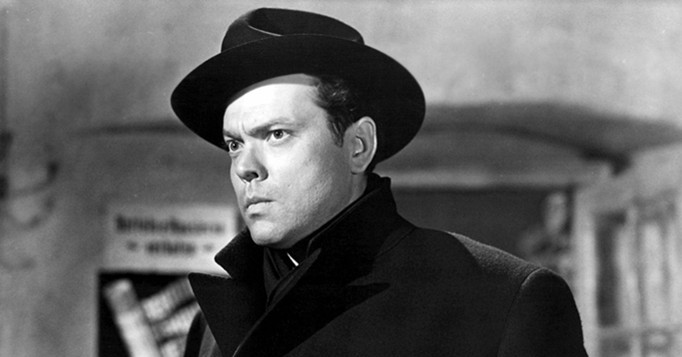
Given how few scenes actually feature Orson Welles’ Harry Lime, his presence is felt in just about every moment of Carol Reed’s seminal classic. Rarely has a villain been built up as much as Lime, and the payoff still exceeds any and all expectations. From the moment Joseph Cotton’s Holly Martins sets foot in Vienna, he is embroiled in the seedy racketeering underworld of the historic city, searching for answers that everyone else already seems to know. Carol Reed brings the dark cynicism of Hollywood’s film noirs to a ravaged post-war Europe, filling every nook and cranny of the historic Austrian capital with fear, mistrust and death. It all bubbles beneath the surface, finally bursting through with the introduction of Welles and his infamous smirk.
It only takes one scene for you to completely understand Lime’s entire mindset. In one conversation while riding Vienna’s famous Weiner Reisenrad, he reminisces with his childhood friend, preaching his heartless doctrine of self-interest to Cotton’s appalled novelist. Welles plays him with a mischievous glint in his eye, making him near impossible to dislike in spite of his callous behaviour. This is a man who sees selfishness and bloodshed as a natural part of human advancement, and is all too willing to sacrifice human life for the cause of Harry Lime. ‘The world doesn’t make any heroes, outside of your stories’ he proudly boasts to Holly, as he half seduces, half intimidates his old friend. In the hands of anyone else he’d be nothing short of detestable, but with the laid back swagger and glee of Orson Welles he becomes larger than life, the kind of man you just want to see more of. His mantra is contemptible, but he’s just so undeniably charming that you’ll happily listen to his quips about ants and cuckoo clocks over and over again.
He wanders in just beyond the halfway mark and completely steals the show, crystalising the dark, disturbing atmosphere Reed carefully establishes. Although he received no awards recognition for the role, there is perhaps no better example of the power of a brilliant supporting actor.
1. Johnny Fletcher from Naked
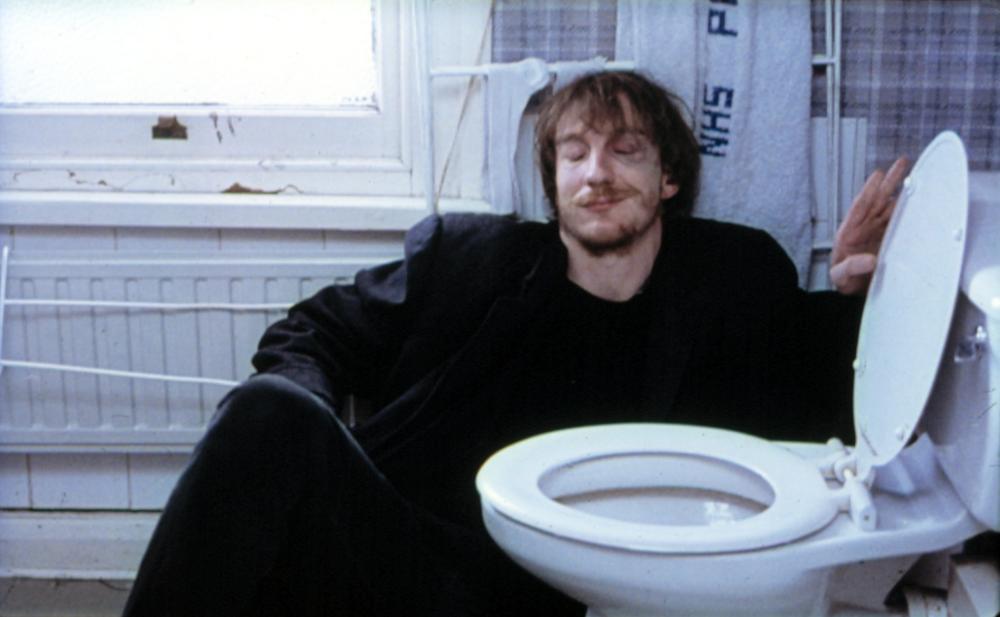
Mike Leigh is a director known for making films with a particularly bleak outlook on life. Much of his early filmography captures the uncaring cruelty of Thatcher’s Britain, with a quiet dignity and respect for those suffering under unsympathetic institutions. Of all his films, none are quite as difficult, unpleasant and downright nihilistic as Naked. Leigh explores the underbelly of society with shocking brutality, defying convention as he leaves a sense of hopelessness to fester and spread across everything and everyone. And with David Thewlis’ Johnny, he has his most compelling main character.
Few characters are as equally charismatic and distasteful as Johnny. He’s an uncompromising egomaniac with a frustratingly cynical outlook on life, that he imposes onto everyone around him, stranger or not. Deeply intellectual yet completely incapable of giving a straight answer, he instead reverts to piss-taking and wind-ups, as his way of venting his frustration at a society he feels no connection to. His every act is a selfish one, concerned with himself and only himself. It’s a strange case of serious misanthrope desperate to talk to people, to let everybody know just how wrong they are. Lashing out at anyone who gets close to him, he’s stuck in an endless spiral down towards the gutter of humanity.
His philosophical preachings give the impression of intelligence, yet he’s a pathetic drifter, dominating the women in his life and incapable of getting through simple conversations without being rude and vulgar. At times his self-destructiveness borders on sadism. But however disturbing he is, Thewlis’ fast-paced, totally unsympathetic performance makes him utterly fascinating – like a man wasting all his natural charm and personality out of sheer spite. His interactions are as darkly amusing as they are unsettling, his wry sense of humour harnessed in the service of a uniquely British kind of cynicism.